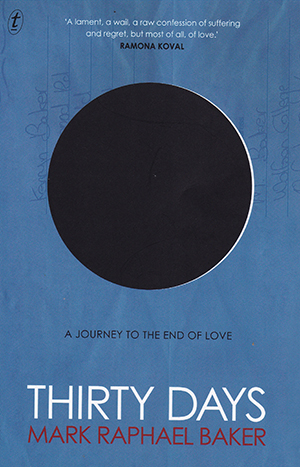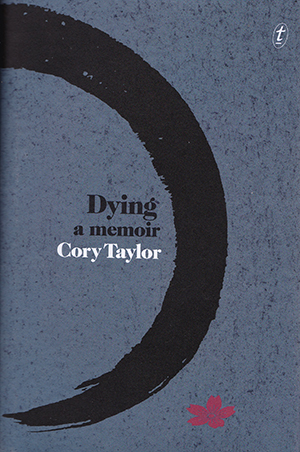The Bright Hour
A Memoir of Living and Dying
Nina Riggs
Text 310pp $29.99
The last three books to hit my desk from Melbourne based Text Publishing have concerned living and dying, two of them by female authors, one Australian (Cory Taylor), the other American (Nina Riggs), who both passed on soon after completing their manuscripts.
The third, Thirty Days - A Journey to the End of Love, is by Jewish-Australian author Mark Raphael Baker (The Fiftieth Gate) who has written beautifully about his relationship with wife Kerryn and her death of a rare bowel cancer relatively soon after diagnosis.
It took just thirty days, the prescribed Jewish mourning period for a spouse, for him to complete the memoir of a married life that had consumed three happy decades of the couple’s life. His earlier book, an account of his parents’ Holocaust experiences, had taken many years to complete.
Sadly, a similar time-frame from diagnosis to death applied to Nina Riggs, an acclaimed writer who lived in Greensboro, North Carolina with husband John, their two ever-curious young sons, and their dogs.
Her tale takes us deep into the heart of the family, sharing their meals, their reunions and vacations, and the stories of their relatives, including her famous forebear, writer Ralph Waldo Emerson, whose thoughts she references frequently.
While we’re encouraged not to judge books by their covers, I must confess that The Bright Hour’s didn’t quite do it for me, the clever but pastel design being more akin to a self-help book than one charting a life well lived, and a death journey intelligently examined.
I note this reluctantly as an acknowledgment by the author’s husband John Duberstein makes clear that Riggs liked it a lot - “Nina wanted to thank Samantha Hahn for the fantastic cover art…”

Certainly this is a book as much about, perhaps even more about, living than dying, but it is underpinned by the finality of death, and the cover image sits in contrast to the covers of Thirty Days and the late Cory Taylor’s much praised Dying - a Memoir, striking in their eclipse-like simplicity. Both were designed by Text’s W.H .Chong.

Appropriately, however, Riggs’ title and its cover are inspired by her favourite time of day, early dawn, and it seemed fitting, as husband John puts it, that she would die just before daybreak, in February this year, at the age of 39.
While tragic, as is any young death, this book is a wonderful memoir of a well educated American family - that is stricken by ill health (Riggs’ mother had died of cancer not long before her own terminal diagnosis).
Yet there are memories of social occasions and times well spent, both before and after she and John had children. It is often laugh-out-loud, my favourite being her description of a dinner at an Argentinian steak house in Paris, a city where they had lived pre-children. The meat, she notes, was cooked sanglant - “as they say: bloody… more marbled than the palace at Versailles.”
Riggs has a fine facility with words, and amidst her enjoyable recollections she manages to chart the cancer journey with dexterity.
“On the latest mammogram images, it looks like you’re staring down from an airplane at night. The two tumours are lit-up cities - say Greensboro and Winston-Salem. And the four-centimetre stretch between them is Interstate 40, illuminated by headlights. We won’t know exactly how trafficky I-40 is until the surgeon gets in there.”
Later, with tumours in her hips and pelvis, she needs to use a cane, choosing one in dark blue with a “comfy rubber grip and a floral pattern that looks like bathroom wallpaper from the 1960s. I’m pretending that I’m starting a hip new craze… like vaping or lumberjack beards or bone broth. Canes: the new frontier in walking… Extra virgin, cold-pressed walking.”
This is a wonderful memoir that deserves to be read by the living and dying everywhere.




